King's College London
Nigeria: Practices of Colonial Power in the Niger Delta
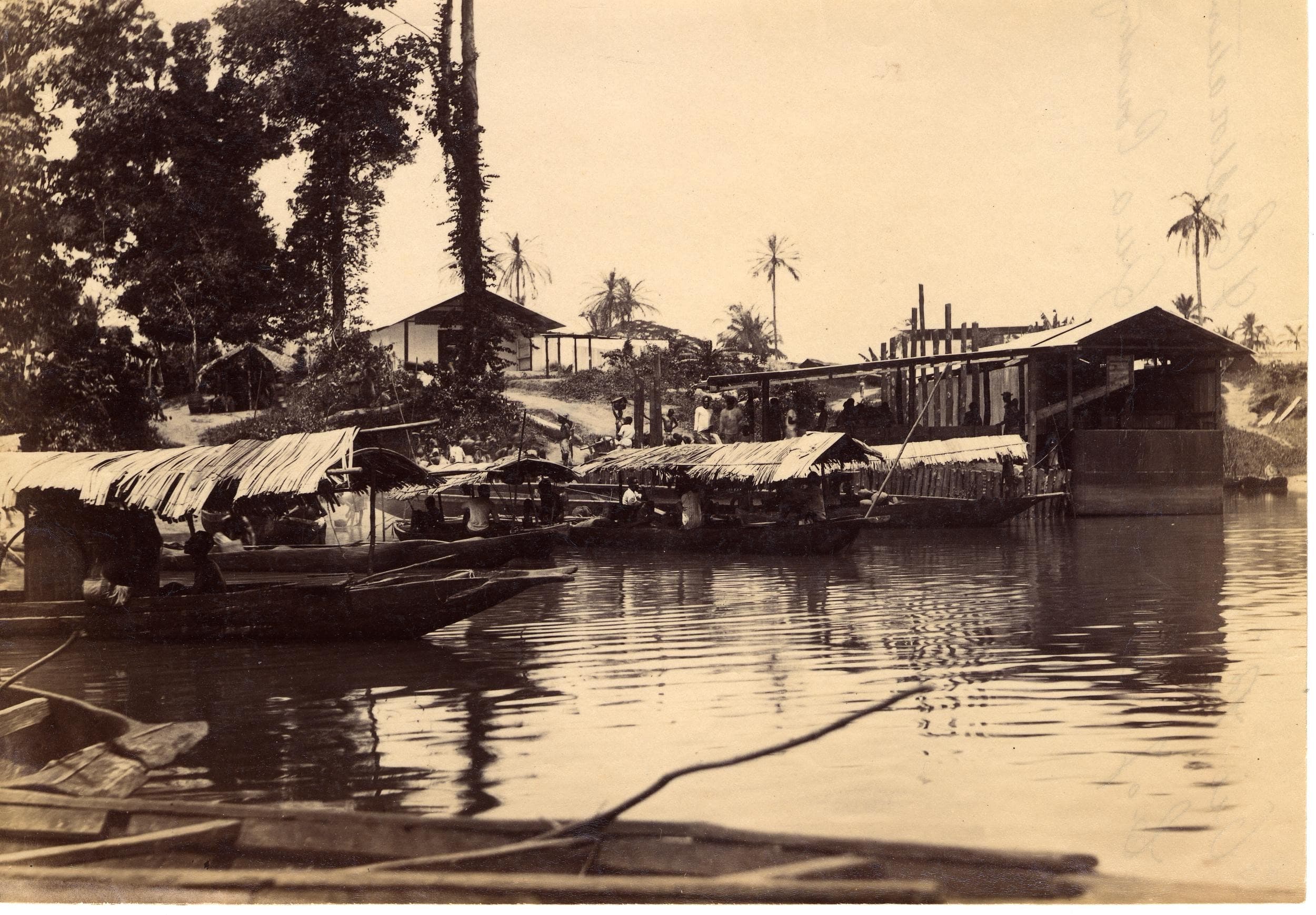
Authored and curated by Naluwembe Binaisa
Time echoes through this preliminary visual enquiry into practices of colonial power in the Niger Delta. It seeks to trace the complex iterations of injury as well as the multi-sited cycles of agency. The people, land and environment on this rim of the West African coastline, whose interior is bisected by the mighty River Niger, have for centuries been imbricated in the violent dynamics of the Africa <> Europe compact. From slavery to palm oil, to petroleum and poverty, these people, their land and environment persist despite centuries of hope dressed up as civilizing missions, dispossession framed as material progress. At the center of these seemingly endless iterations of violence, hope, conflict and resource extraction, are the exigencies of . This forms the bedrock on which practices of colonial power rest to sustain multi-dimensional injury, which continues to bleed into postcolonial Nigeria. Fieldwork and ongoing research across the course of this project will seek to enrich this enquiry and incorporate private and alternative archives, documents, images, objects and testimonies, to further interrogate colonial practices and their afterlives. In this exhibition four interrelated themes trace these sedimented flows: Treaties and Maps; Symbolic Power; Circuits of Extraction and Production; Agency and Resistance.
Stamps and Symbolic Power Entanglements
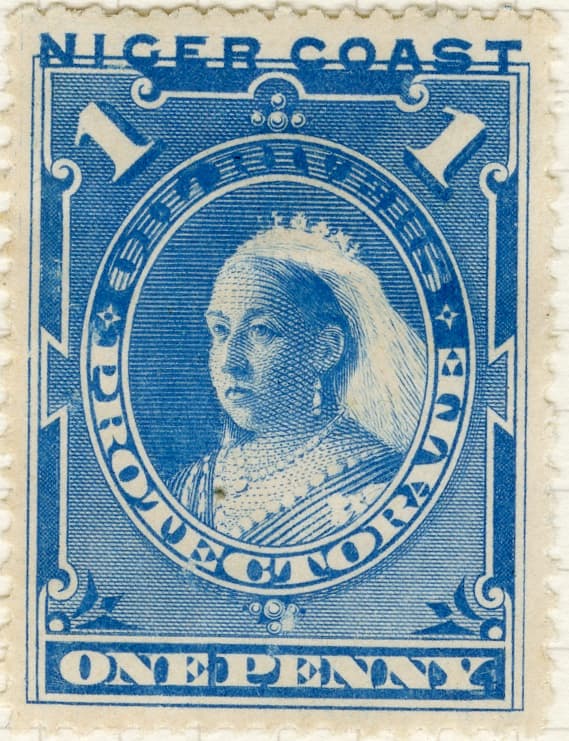
The British Empire sought to legitimise its imperial domination through symbolic representations used, for example in imperial postage stamps. The figurehead of Queen Victoria an early advocate of the image economy, saturated Empire with her portrait on stamps, currency and in government buildings. Stamps served as symbols of Imperial power in a Victorian era that saw the rapid expansion of the postal system (Jeffrey 2006). Queen Victoria’s royal assent to a universal postage system elevated the stamp to a vehicle for imperial propaganda that reached the global masses. Images and text projected possession under the guise of protection and duty. Oil Rivers became the enduring name for the Niger Delta as palm oil, the main resource extracted in the colonial period, was replaced by petroleum in the post-independence era.
Stamps reproduced with kind permission of Royal Mail Group Ltd.
This 5-shilling stamp issued 60 years later in the reign of the new Queen Elizabeth II, unapologetically depicts the extractive relationship between Nigeria, the people, environment and Empire. Engraved in the frame as the title of the stamp is the valuable resource palm oil. The painting beneath shows people toiling to load and transport the palm oil barrels via canoe. Their destination is the modern large cargo ship that will transport this valuable load back to Britain. This 5-shilling stamp comes from an issued Nigeria series where each stamp denomination proudly features a cash crop that was enriching Empire.
Stamps reproduced with kind permission of Royal Mail Group Ltd.
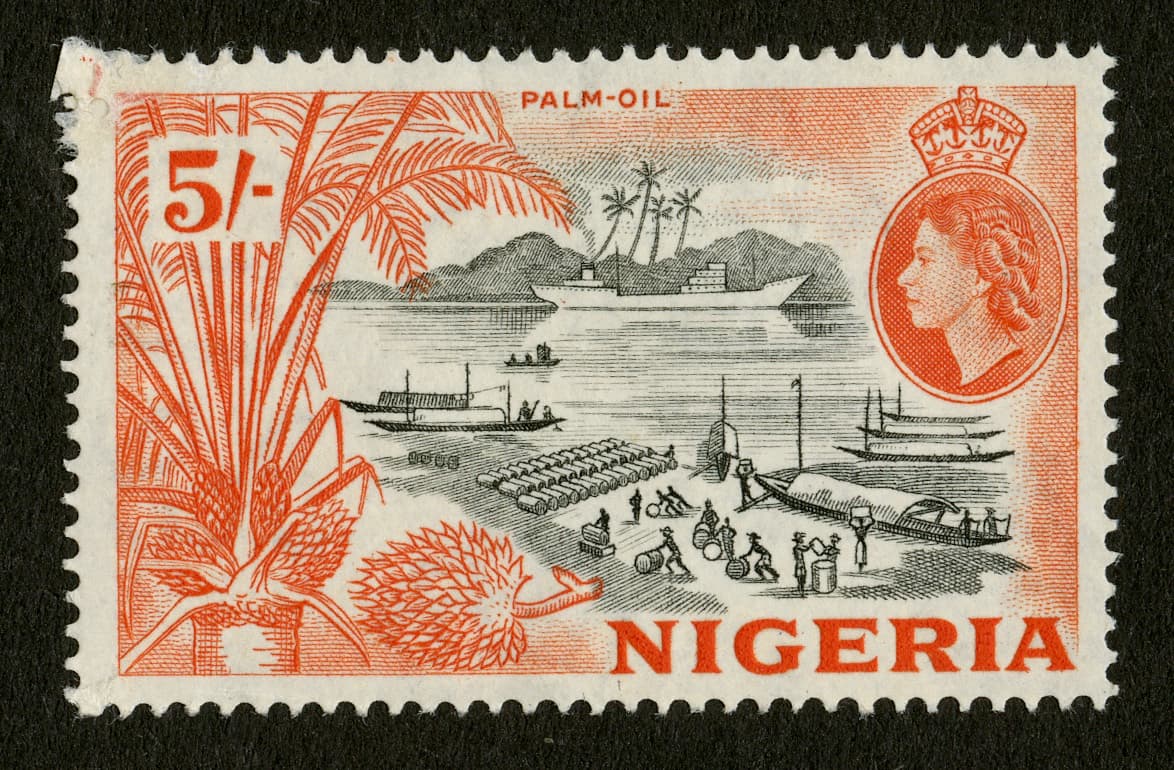
Symbolic Continuities: Slavery, Commerce and Currency
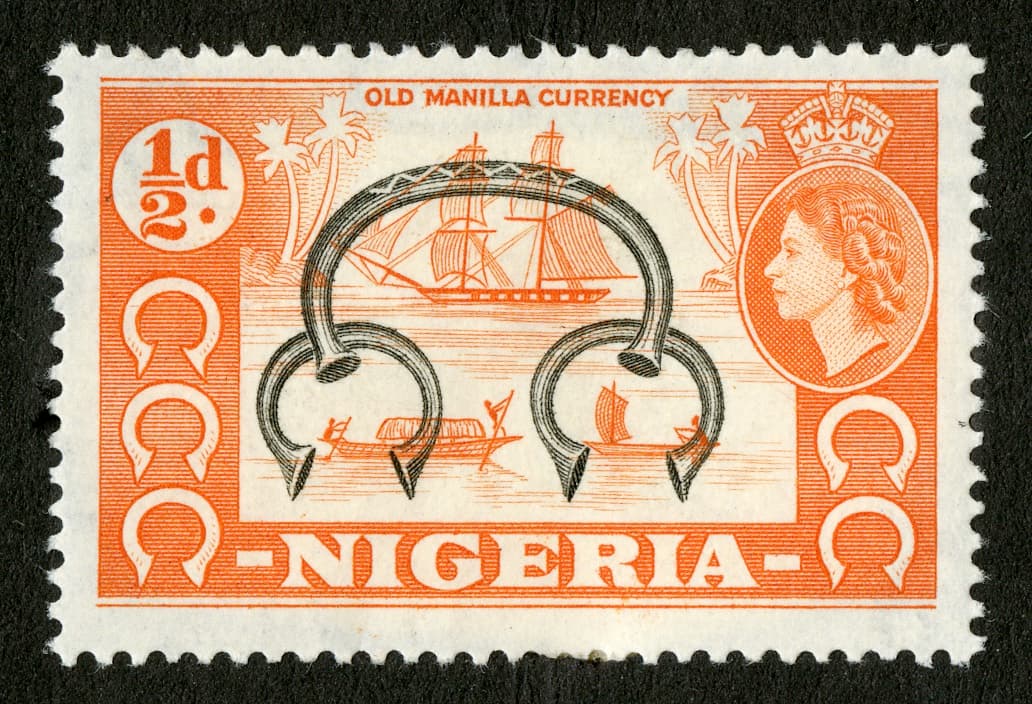

The use of old manilla currency with its problematic history on a 1953 QEII Nigeria stamp, symbolises the power of Empire and the violence that haunts contemporary terms of exchange. The Niger Delta region’s earliest interactions with Europe were through 400 plus years of the slave trade (Dike 1956). Manillas introduced by the Portuguese were a primary form of currency and exchange value used in this devastating trade (Jones 1958). Their use persisted as internal trade continued, and palm oil trade slowly replaced slavery. By the late 19th century manilla currency remained in use and as we see from the image in the British Museum archives, that brass manillas manufactured in Birmingham, UK were part of the ‘moneys of Atlantic Africa’ (Guyer 2012). This facilitated the exchange of palm oil for goods from Liverpool merchants, exacerbating unequal terms of trade and highlighting the heinous continuities of the resource extraction economy as part of global markets.
Postal Museum, Stamp Nigeria Old Manilla Currency , Queen Elizabeth II, 1953.
Stamps reproduced with kind permission of Royal Mail Group Ltd.
British Museum No. Af1971,23.53.b-f Manilla currency, produced Birmingham, UK; found/acquired Nigeria (south east) © The Trustees of the British Museum Shared under a Creative Commons Attribution-NonCommercial-ShareAlike 4.0 International (CC BY-NC-SA 4.0) licence
Religion and Imperial Power
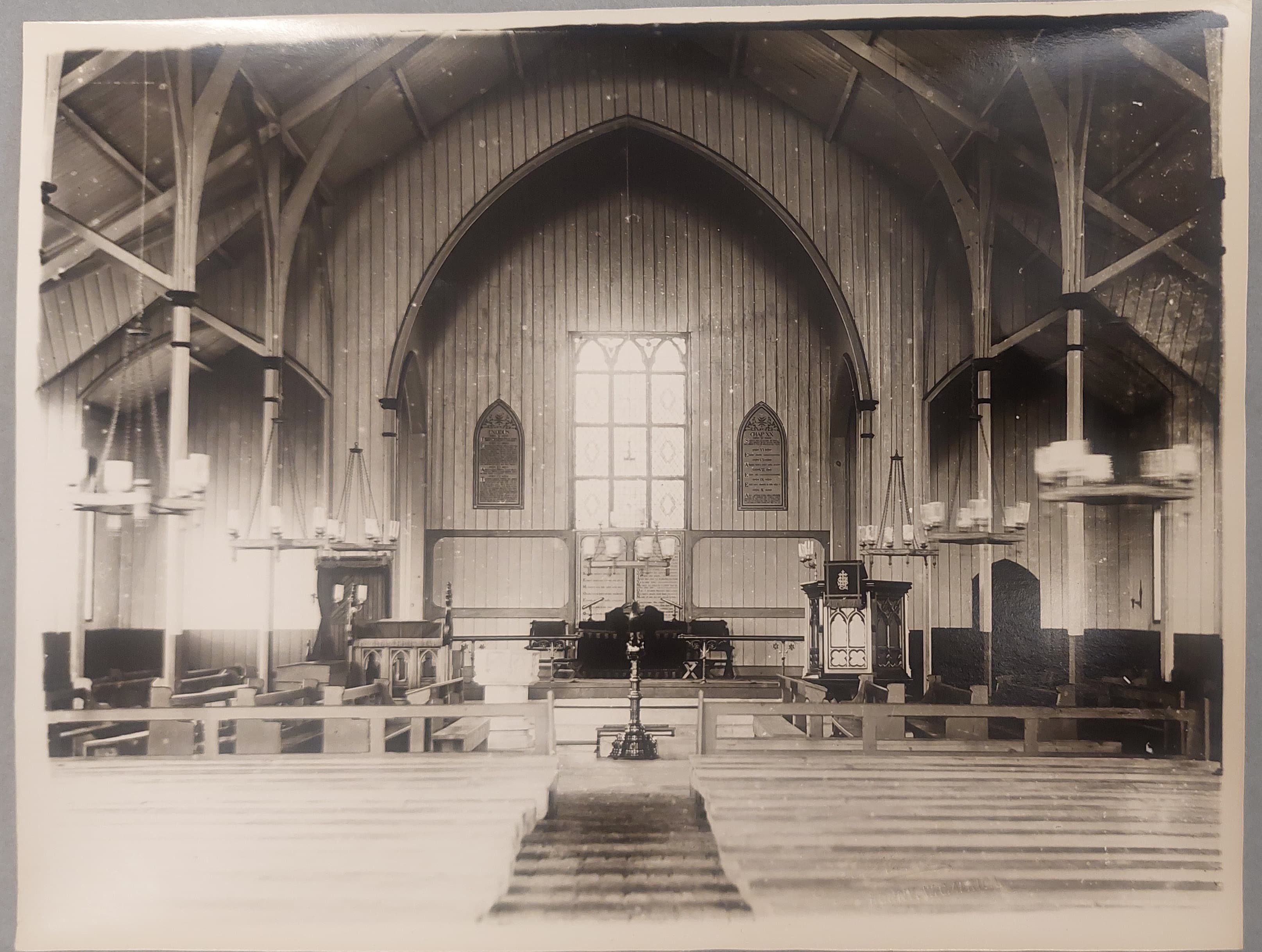
Religion, a key dimension of colonial power symbolized Empire’s self-proclaimed ‘civilizing mission’ that guided the failed Niger Expedition of 1841. This brought together military and religious forces as well as business leaders justifying their pursuit of resources and markets as core to any ‘civilizing mission’ (Ifemesia 1962). The Niger Expedition was defeated by illness and death but set a precedent for these four powerful forces, church, military, state and commerce, to work together. The Church was both a symbol and arm of Empire working through bodies such as the Church Missionary Society (CMS), whilst also benefitting from the gunboat diplomacy of ‘punitive expeditions’ .
Imperial ‘visions’ were solidified through the infrastructures of religion such as mission schools which had a virtual monopoly on formal Western education (Amadi 1977) . The acclaimed novelist Chinua Achebe insightfully articulates in his novel Things Fall Apart, the ultimate costs of this era of consolidating imperial power.
The white man is very clever. He came quietly and peaceably with his religion. We were amused at his foolishness and allowed him to stay. Now he has won our brothers, and our clan can no longer act like one. He has put a knife on the things that held us together and we have fallen apart.
Niger Delta rulers either resisted or courted missionaries in this changing world order. The image shows the interior of St. Stephens Church, Bonny in 1897. This was the first Anglican Cathedral Church in Nigeria and was established in 1864.